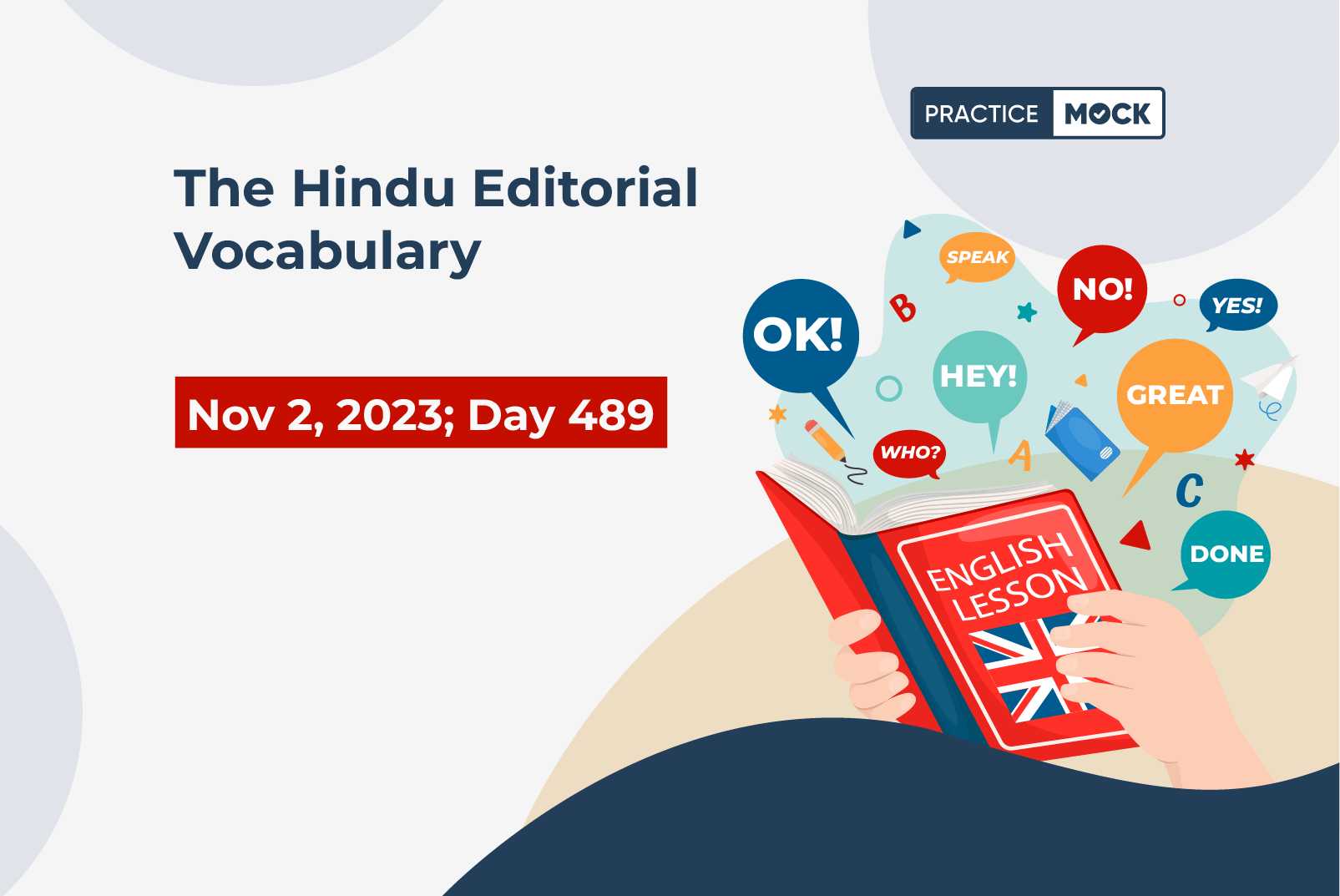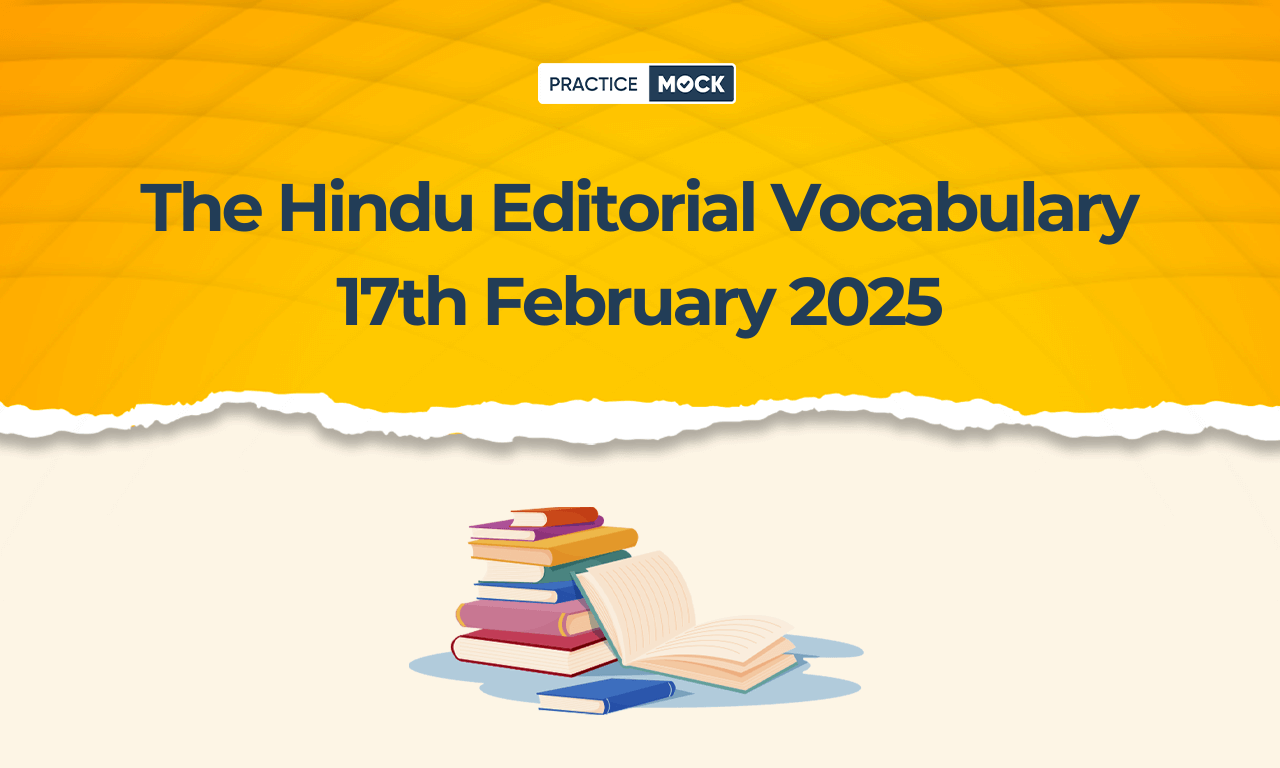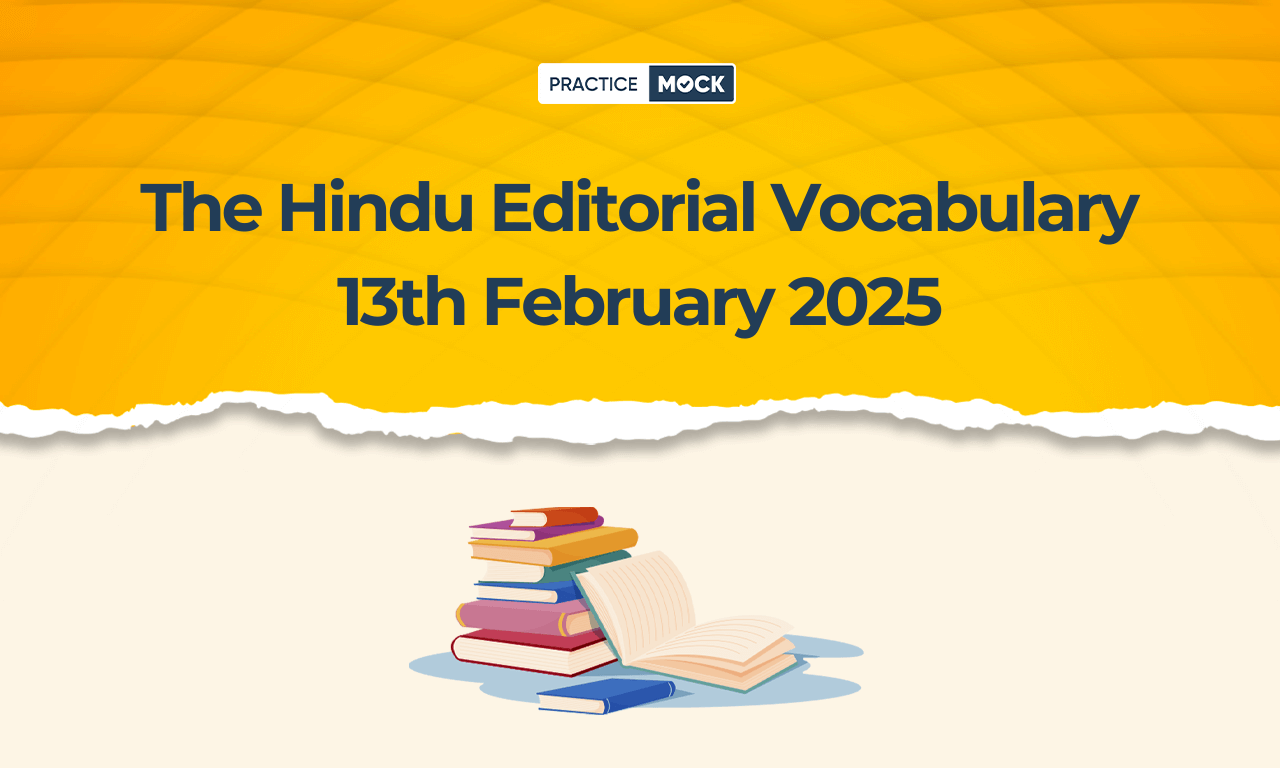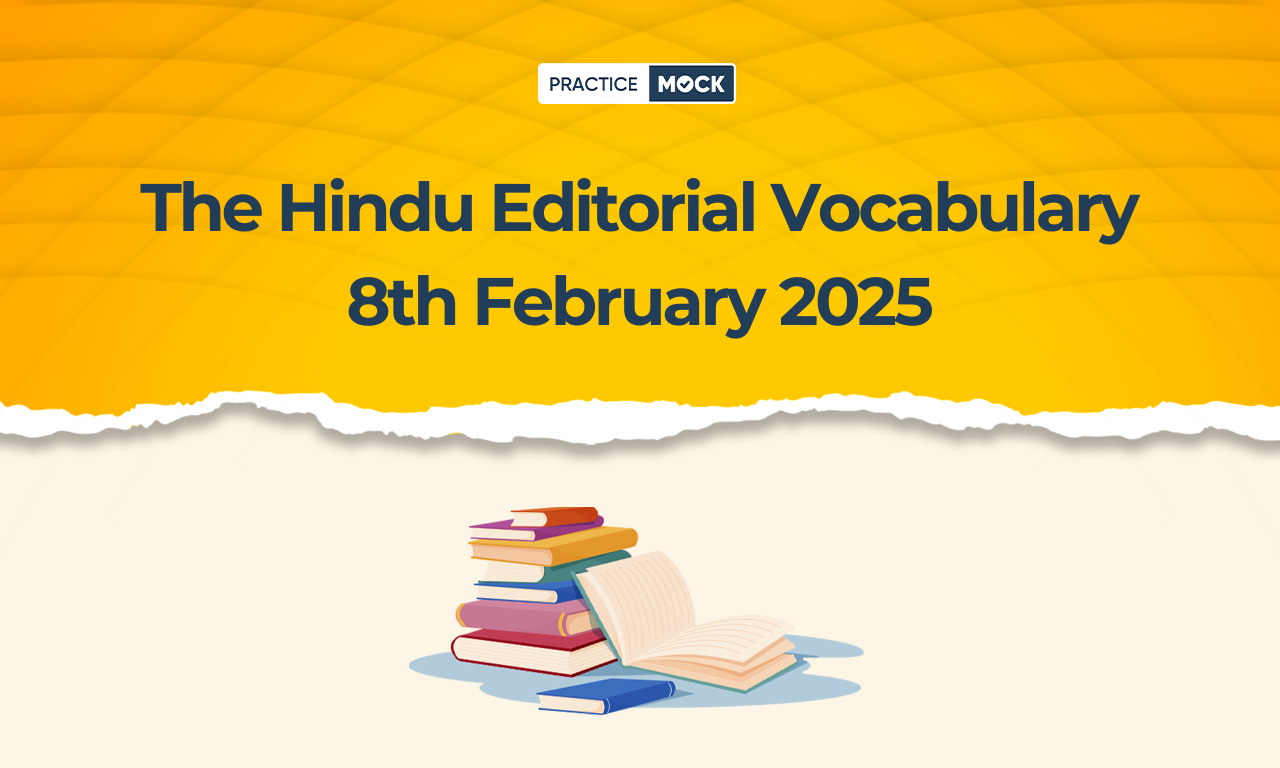The Hindu Editorial Vocabulary– November 2, 2023; Day 489


| Difficult Word/ Phrase | Contextual Sense |
| Virtue | Any admirable quality or attribute |
| Blueprint | Something intended as a guide for making something else |
| Factor in | Consider as relevant when making a decision |
| Brainstorm | Try to solve a problem by thinking intensely about it |
| Finetune | Adjust finely |
| Blind spot | A subject about which you are ignorant or prejudiced and fail to exercise good judgment |
| Playbook | A scheme or set of strategies for conducting a business campaign or a political campaign |
| Earnest | Not distracted by anything unrelated to the goal |
| Outlook | Belief about (or mental picture of) the future |
| Account for | Be the reason or explanation for |
| Hue | aspect |
| Blip | A sudden minor shock or meaningless interruption |
| Vigour | strength or energy |
| Hark back | Go back to something earlier |
| Overtly | In an observable manner which is not hidden |
| Zealous | Marked by active interest and enthusiasm |
| Splice | Join |
| Hasten | Speed up the progress of |
| Recalibrate | Make fine adjustments |
| Laudable | Worthy of high praise |
Virtues (Any admirable quality or attribute) of planning: On the Vision India@2047 plan
The blueprint (Something intended as a guide for making something else) to develop India by 2047 must factor in (Consider as relevant when making a decision) critical governance reforms
In early 2024, Prime Minister Narendra Modi is expected to unveil a road map to transform the country into a developed nation with a $30 trillion economy by the time it completes 100 years of Independence. The Vision India@2047 plan, as it is officially named, has been in the works for nearly two years with officials across ministries brainstorming (Try to solve a problem by thinking intensely about it) on how to take the country from its current level of development to where it aspires to be. The NITI Aayog, in the process of giving this vision document a final shape, will soon run its central ideas and goals past top minds across sectors, including World Bank President Ajay Banga, Apple chief Tim Cook, as well as Indian industrialists and thought leaders, to finetune (Adjust finely) them and factor in any blind spots (A subject about which you are ignorant or prejudiced and fail to exercise good judgment). Coming ahead of the Lok Sabha election, the plan may well be viewed as the government’s policy playbook (A scheme or set of strategies for conducting a business campaign or a political campaign) promise for prospective voters. But irrespective of electoral outcomes, future governments would do well to keep an earnest (Not distracted by anything unrelated to the goal) outlook (Belief about (or mental picture of) the future) towards the broad agenda. India’s rise from 1991, when it accounted for (Be the reason or explanation for) 1.1% of the global economic output, to the 3.5% share it now commands as the world’s fifth largest economy, has been driven by governments of varying political hues (aspect) largely sticking to the reform and liberalisation agenda. Blips (A sudden minor shock or meaningless interruption) in the pace and vigour (strength or energy) of reforms have also been visible across governments, including the present coalition-independent regime, especially on the trickier changes needed in factor markets such as land and labour.
The final plan should have some ideas to help navigate such challenging reforms and ensure policy certainty for global investors keen to bet on India’s growth story. Minimising the government’s role to that of an enabler rather than a micro-manager, is another detail that would be critical, especially as some recent decisions have marked a hark back (Go back to something earlier) to habits of the past, be it production-linked incentives, import licensing or overtly (In an observable manner which is not hidden) zealous (Marked by active interest and enthusiasm) taxation. A stated focus area of the vision document that splices (join) its action points and outcome goals into two periods — 2030, and the 17 year-period from then till 2047 — is to ensure that India does not slip into a middle income trap a few years from now. That requires hastening (Speed up the progress of) the long-pursued structural shift in the economy from farms to factories, and arresting a widening trend of income inequality. While the Five-Year Plans have been abandoned, the 2047 plan must be revisited at suitable intervals to recalibrate (Make fine adjustments) goals based on evolving global trends and Black Swan events. Aiming for a high 9% growth rate between 2030 and 2047 is laudable (Worthy of high praise) but factoring in alternative scenarios and changing course when warranted, is also advisable.
Want to improve your vocabulary further? Download the Lists of Word-Meanings of Previous Months here.
Recent Posts
AAI ATC Recruitment 2025 Notification Out for 309 JE Posts
The AAI has released the AAI ATC Recruitment 2025 Notification on its official website to…
SSC CGL 2 Months Study Plan 2025, Get Free PDF, Topic-Wise Tests
In this blog, we have provided the SSC CGL 2 Months Study Plan, take your…
SSC CGL 2025 Notification, Check Exam Date (Expected)
The SSC will release the SSC CGL 2025 Notification on 22nd April on its official…
RBI Grade B Salary 2025, Check In Hand Salary, Job Profile and Career Growth
RBI Grade B Salary 2025 details are provided. Candidates can check it to know the…
List of First in India GK PDF, Download Now
Know the name of all the personalities who pioneered in a particular field. Be through…
Success Story of Himanshi Cleared IBPS PO and Clerk
PracticeMock's mocks quality is simply amazing says Himanshi who has cleared IBPS Clerk & PO.…


